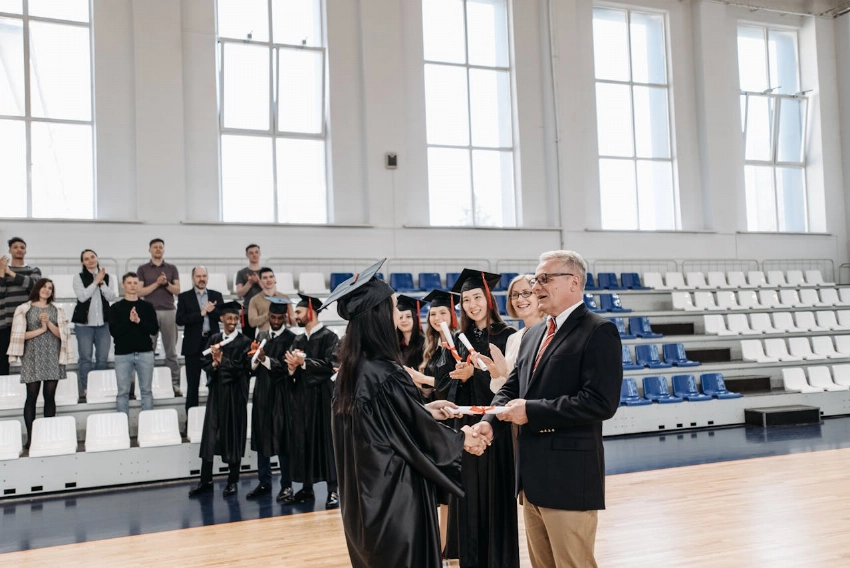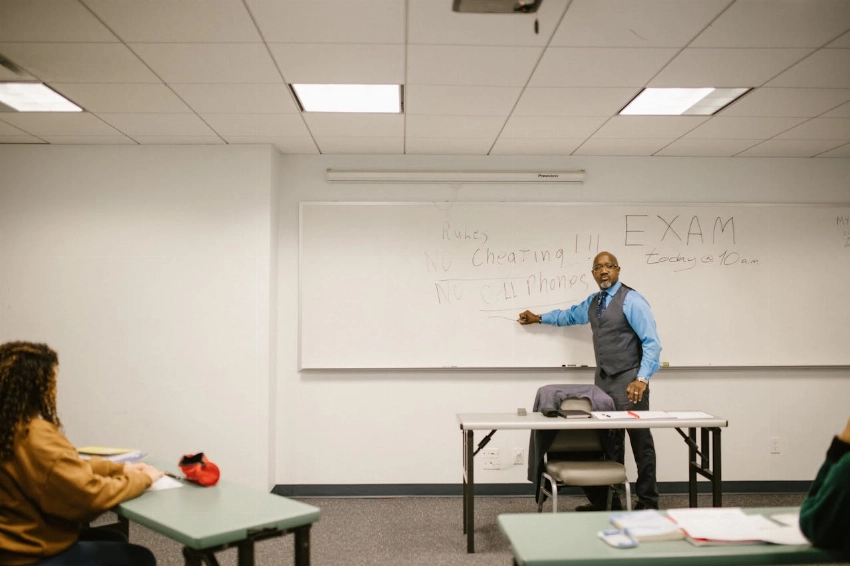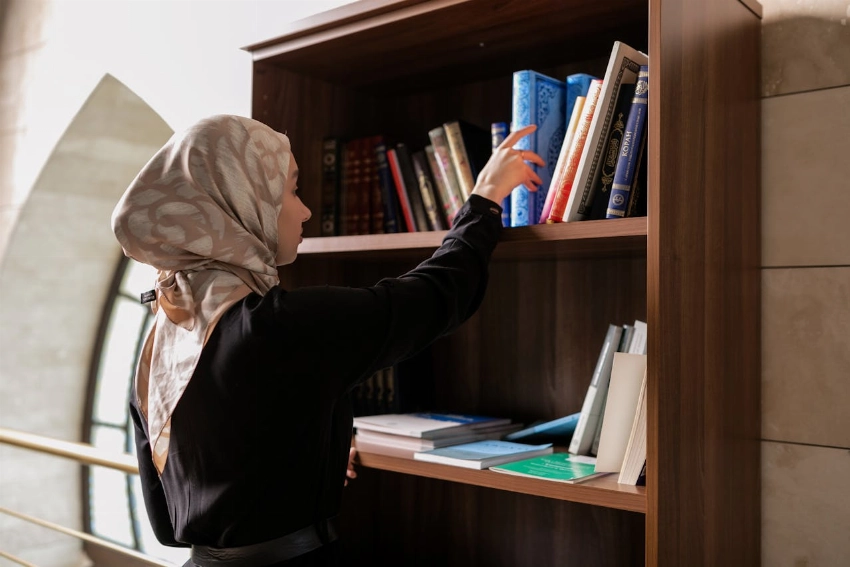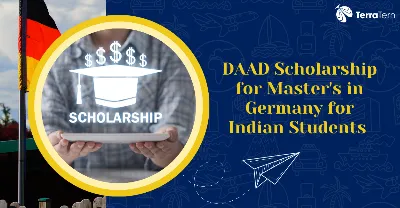Key Highlights
- What Are DAAD Scholarships and Why Do Indian Students Choose Them in 2025?
- Which Are the Top DAAD Scholarship Programs for Indian Masters Students in 2025-26?
- What Are the Complete DAAD Scholarship Eligibility Requirements for Indian Students in 2025?
- How Much Financial Support Do DAAD Scholarships Provide in 2025-26?
- What Documents Are Required for DAAD Scholarship Applications in 2025?
- When Are the DAAD Scholarship Application Deadlines for the 2025-26 Academic Year?
- How Do Indian Students Apply for DAAD Scholarships Step-by-Step in 2025?
- What Are the DAAD Scholarship Selection Criteria and Interview Process?
- Which German Universities Accept DAAD Scholarship Recipients in 2025?
- Which German Universities Are Most Popular Among Indian DAAD Scholars in 2025?
- What Are the Living and Studying Conditions for Indian DAAD Students in Germany?
- What Career Opportunities Exist After Completing DAAD-Funded Masters Programs in 2025?
- What Are Common Mistakes Indian Students Make in DAAD Applications?
- Conclusion
Bilateral coordination of the German Academic Exchange Service DAAD scholarship for masters in germany for indian students, were considered before to be one of the most significant fully funded education options in the European scale, providing complete assistance, a Monthly Allowance of EUR934, Overall tuition charges, Health Insurance, and Travelling Allowance. The DAAD scholarship is a unique opportunity for Indian students to pursue higher education in one of the largest hubs of learning worldwide, where they can encounter and benefit from cross-cultural exchange and professional training.
What Are DAAD Scholarships and Why Do Indian Students Choose Them in 2025?

DAAD scholarship for masters in germany for indian students(Deutscher Akademischer Austauschdienst), known in the English language as German Academic Exchange Service, is the world's largest international organisation for support of international educational exchange, having fully funded study and research programmes for international students through scholarships, grants, and structured programmes related to various disciplines.
Benefits:
-
The most crucial body for funding the Internationalisation agenda is the German Academic Exchange Service (DAAD), which receives most of its funding from the German Foreign Office and other ministries, which is indicative of the commitment of the German state to internationalisation.
-
The top, in terms of the number of applications for full-time doctoral scholarships in the latest round, was India, as a testimony to reasonable levels of Indian involvement in teaching at the highest levels of academic research work.
-
Government partnership and predictable financing come via federal funds led by the German Federal Foreign Office, reinforcing program continuity and policy alignment in priority fields.
-
India was the top in the number of applications for complete doctoral scholarships in the latest round, a testimony to reasonable levels of Indian participation at the highest levels of academic research.
How Many DAAD Scholarship Programs Are Available for Indian Masters Students?
DAAD scholarship for masters in germany for indian students is Flanders as listing dozens of Scholarship is listed as later relevant to the Indian nationals for seeking a Master's degree in sphere of affairs the current at the present time involving the Case budapest webpages as the scholarship database this which is providing 30+ the scholarship programmes across the check list which covers of general study scholarships education develop relevant scholarships and also governance for the public policymaking pathway for its 2025-2026 Scholarship timelines and right away ahead.
These are the broad "Study Scholarships - Master Studies for All Academic Disciplines", development-oriented EPOS-category offers, and leave the Helmut-Schmidt-Programme (Master's Scholarships for Public Policy and Good Governance), to name but a few slated for selections and starting from 2026.
-
General Study Scholarships: Master Studies For All Academic Disciplines. Suitable Graduates from all fields, often Indian applicants
-
Specialist Courses: Development-Related Postgraduate Programme (EPOS); Postgraduate Programme - Helmut-S Damian and Caspar Schmidt Programme (Governance) 2025/2026 and 2026/2027 respectively;
What Makes DAAD Scholarships More Attractive Than Other Funding Options?
Scaling and recognition vs other funders: As the world's most prominent exchange organisation, DAAD funds 140,000+ students annually, which gives applications and post-graduation employer acknowledgement a considerable advantage.
-
Integrated Language Advantage vs. Typical Models: chosen DAAD tracks incorporate German language training before studies (e.g., Helmut-Schmidt), enhancing academic success & employability in Germany.
-
Government-Backed Stability vs. Private Funds: primary financing from the German Federal Foreign Office and other ministries ensures continuity and policy-backed thematic priorities.
-
Alumni and Networks vs Smaller Schemes: having more or less around 3 million alumni, DAAD allows for rich mentoring, research collaborations, and career linkages, both in academia and industry.
-
Global vs. India-Specific Relevance: India has headed recent Doctoral scholarship application batches, and the DAAD scholarship for master in germany for indian students holds advantages owing to the guidance and updates of DAAD's India office and the application strategies specific to the Indian Students.
Also Read: Top Scholarships for Indian Students in Germany
Which Are the Top DAAD Scholarship Programs for Indian Masters Students in 2025-26?
DAAD scholarship for masters in germany for indian students identifies multiple master's level scholarships relevant to Indian nationals:
|
DAAD Scholarship Program |
Target Group |
Monthly Stipend |
Duration |
Key Requirements |
Application Deadline |
|
Study Scholarships for All Academic Disciplines |
Master's students in any field |
€992 |
10-24 months |
Bachelor's degree not older than six years, university admission, and language proficiency |
October 31, 2025 |
|
EPOS Development-Related Postgraduate Courses |
Development professionals |
€934-€1,300 |
12-42 months |
2+ years of work experience, bachelor's degree, development focus |
Varies by program |
|
Helmut-Schmidt Programme |
Public policy & governance students |
€934 |
12-24 months |
Degree in law/politics/economics, leadership potential, 6-month German course |
July 31, 2025 |
|
Architecture Scholarships |
Architecture master's students |
€992 |
10-24 months |
Portfolio submission, minimum 45 CP for 120 CP programs |
October 31, 2025 |
|
Fine Arts & Design |
Creative field students |
€992 |
10-24 months |
Artistic qualification, work samples, study plan |
October 31, 2025 |
|
KOSPIE Program |
IIT engineering students |
€992 |
7 months |
Second semester masters or eighth-semester integrated degree |
March 31, 2025 |
The table shows comprehensive information about the top DAAD scholarship programs available for Indian master's students in 2025-26, with monthly stipends ranging from €934 to €1,300 and varying duration periods to accommodate different academic and professional goals.
What Is the Study Scholarships Program for All Academic Disciplines?
DAAD scholarship for masters in germany for indian students to study Program for All Academic Disciplines is as follows:
-
Funding Amount: €992 monthly stipend for 10-24 months, plus €460 annual study allowance, travel allowance, and health insurance coverage
-
Eligibility: Completed bachelor's degree not older than 6 years, confirmed university admission, and language proficiency in German or English.
-
Target: Any academic discipline for complete master's degrees or one-year study periods as part of home university programs
-
Application Deadline: October 31, 2025, with funding beginning October 1, 2026
How Does the EPOS Development-Related Postgraduate Program Work?
The EPOS development-related postgraduate program works in the following way:
-
Funding Amount: €934-€1,300 monthly stipend for 12-42 months, depending on academic level and program duration
-
Eligibility: Minimum two years of professional experience in development fields, bachelor's degree in related subjects, upper-third academic performance
-
Target: Professionals from developing countries working in sustainable development, public authorities, or development-focused organisations
-
Application Deadline: Varies by program, typically September-October 2025; apply directly to chosen postgraduate courses
What Is the Helmut-Schmidt Programme for Public Policy and Governance?
The Helmut-Schmidt programme for public policy and governance is:
-
Funding Amount: €934 monthly stipend plus comprehensive benefits, including a 6-month German language preparation course
-
Eligibility: Bachelor's degree in law, politics, or economics with above-average grades, relevant professional experience, and a degree completed after January 2019
-
Target: Future leaders in public administration, governance, and policy from developing countries committed to democratic values
-
Application Deadline: July 31, 2025, for master's degrees at participating German universities focusing on good governance
Are There Specialised DAAD Scholarships for Technical and Creative Fields?
-
Architecture: Dedicated “Study Scholarships: Postgraduate Studies in the Field of Architecture” are listed in the DAAD database with benefits aligned to standard DAAD Master’s packages and course‑specific timelines.
-
Fine Arts/Design/Film and Music: Field-specific DAAD study scholarships are available for the arts, with discipline-specific portfolios, audition requirements, and DAAD-aligned funding rules and durations.
-
Engineering Collaborations: DAAD maintains India‑focused calls and collaborations with leading institutions (including IITs) alongside exchange and scholarship formats announced through DAAD India and program‑specific calls.
What Are the Complete DAAD Scholarship Eligibility Requirements for Indian Students in 2025?

The eligibility requirements for DAAD scholarships vary by program but follow standardised criteria focusing on academic excellence, language proficiency, and professional experience for Indian applicants. These requirements ensure candidates demonstrate both academic capability and potential for contributing to German-Indian academic exchange and development cooperation.
What Academic Qualifications Do Indian Students Need for DAAD Masters Scholarships?
The academic qualifications are:
-
Bachelor's Degree: Must hold a recognised 4-year bachelor's degree from an accredited Indian university for master's programs
-
Graduation Timeline: Degree completion must be within the last 6 years from the application date (not older than 6 years)
-
Academic Performance: Minimum CGPA of 8.0-8.5 or 75%-85% marks preferred for competitive selection, though not strictly mandatory for all programs
-
Field Relevance: Degree should be in a field related to the intended master's program, with some flexibility for interdisciplinary applications.
Which Language Proficiency Tests Are Accepted for DAAD Applications?
The language proficiency tests accepted are:
-
English Programs: Minimum IELTS band 6.0 or TOEFL iBT 80 (550 paper-based, 213 computer-based) for English-taught courses
-
German Programs: TestDaF 4 or DSH-2 certificate for matriculation, with B1 level German acceptable at application time for some programs
-
Alternative Certificates: Cambridge English, TOEIC, PTE Academic (minimum 56), onSET English/German, and Goethe-Zertifikat accepted as valid proof.
-
Institutional Scores: Some programs may accept institutional English proficiency scores from Indian universities instead of standardised tests
Do DAAD Scholarships Require Work Experience for Indian Applicants?
Yes, DAAD scholarships require work experience. These are:
-
EPOS Programs: Mandatory minimum 2 years of relevant professional experience in development-related fields at the time of application
-
Helmut-Schmidt Programme: Relevant experience in public administration, governance, law, economics, or policy work is highly valued
-
General Masters: Most academic discipline scholarships do not require work experience, focusing primarily on academic merit
-
PhD Programs: Research experience or academic work in relevant fields is typically required for research-based scholarships.
What Are the Age and Residency Restrictions for Indian Students?
The age and residency restrictions are:
-
Indian Citizenship: Must be an Indian citizen with a valid passport for a minimum of 6 months beyond the intended stay period
-
Residency Restrictions: Cannot have resided in Germany for more than 15 months at the time of application (some programs specify different limits)
-
Home Country Presence: For short-term scholarships under 6 months, you must have lived in India for at least one year before applying
-
Degree Completion Location: Long-term scholarship applicants must have completed their last degree in India or their home country
Also Read: .How to Get Scholarships to Study Abroad After 12th? Guide
How Much Financial Support Do DAAD Scholarships Provide in 2025-26?
DAAD scholarship for masters in germany for indian students offers substantial financial packages with monthly stipends ranging from €992 for Master's students to €1,300 for doctoral candidates, plus comprehensive additional benefits including health insurance, travel allowances, and study materials support totalling €460 annually. The total annual value for Master's students reaches approximately €12,984-€15,600 (INR 11-13.5 lakh INR), covering most living expenses in Germany and eliminating financial barriers to quality education.
|
Program Level |
Monthly Stipend |
Annual Value |
INR Equivalent |
|
Master's Programs |
€992 |
€11,904 + benefits |
INR 10-11 lakh |
|
PhD/Doctoral |
€1,300-€1,400 |
€15,600-€16,800 + benefits |
INR 13.5-14.5 lakh |
|
Research Grants |
€1,400 |
€16,800 + benefits |
INR 14.5 lakh |
What Monthly Stipend Can Indian Masters Students Expect?
Master's students receive €992 monthly through the general Study Scholarships program. At the same time, EPOS development-related courses provide similar amounts with a specialised focus. The DAAD scholarship for masters in germany for indian students at €992 monthly (approximately INR 85,000-90,000) provides sufficient support for a comfortable student life in most German cities.
-
General Study Scholarships: €992 monthly for all academic disciplines with a 10-24 month duration based on program length
-
EPOS Development Programs: Similar monthly amounts with additional development-focused benefits and networking opportunities
-
Helmut-Schmidt Programme: €992 monthly plus 6-month German language course funding before studies begin
-
Specialised Programs (Architecture, Arts, Music): €992 monthly with field-specific additional support for portfolios and materials
Which Additional Benefits Are Included Beyond Monthly Payments?
The additional benefits are:
-
Health Insurance Coverage: Comprehensive health, accident, and personal liability insurance provided by DAAD, eliminating major healthcare costs during studies
-
Travel Allowances: Lump-sum payments covering round-trip transportation between home country and Germany, plus domestic travel support
-
Annual Study Allowance: €460 yearly allocation for books, materials, conference attendance, and research-related expenses
-
Rent Subsidy: Monthly housing support for eligible programs lasting over 6 months, reducing accommodation costs significantly
-
Family Allowances: Additional monthly support for accompanying spouse/children during scholarship period, enabling family relocation
-
Language Course Funding: Pre-arrival online German courses, TestDaF/DSH examination fee reimbursement, and optional in-country language training
-
Green Mobility Top-Up: Minimum €50 bonus for climate-friendly travel (train/bus) instead of flights, supporting sustainable transportation choices
What Expenses Are NOT Covered by DAAD Scholarships?
DAAD scholarship for masters in germany for indian students explicitly does not cover tuition fees at private institutions. However, public university tuition is generally waived for international students in most German states. Additional personal expenses, such as entertainment, shopping, extended travel, and luxury accommodations beyond the rent subsidy, are not included in the standard package.
-
Tuition Fees: Not covered by DAAD; however, most public German universities charge minimal semester fees (€150-€350) rather than tuition
-
Personal Expenses: Entertainment, shopping, personal travel, and lifestyle costs beyond basic living expenses
-
Private Housing Premium: Costs exceeding the rent subsidy for premium accommodations or luxury housing choices
-
Extended Family Support: Benefits limited to immediate family members; extended family accommodation and support not included
-
Program-Specific Equipment: Specialised equipment, software licenses, or materials beyond the €460 annual study allowance
What Documents Are Required for DAAD Scholarship Applications in 2025?

The documents required for the DAAD scholarship for masters in germany for indian students for the application are:
-
DAAD Application Form: Completed, typed, signed, and dated official form with consistent information matching all other application documents
-
Curriculum Vitae: Must use Europass format, reverse chronological order, no unexplained gaps >3 months, dated and signed
-
Motivation Letter: 1-3 pages addressing selection criteria, academic/professional/personal reasons, dated and signed, program-specific content for multiple applications
-
Academic Transcripts: Complete certified transcripts with grading system explanations, certified English/German translations if original documents are in other languages
-
Language Certificates: Valid proficiency proof ≤2 years old (IELTS 6.0+, TOEFL 80+ for English; TestDaF, DSH, Goethe B2/C1 for German programs)
-
Recommendation Letters: From current employer/academic supervisor on official letterhead with original signature, stamp, and date, addressing applicant's qualifications and potential
Which Academic Documents Must Indian Students Submit?
Academic Documents that Indian Students Must Submit are:
-
Bachelor's Degree Certificates: Officially certified copies of degree certificates with a completed bachelor's degree in the relevant field, translated into English or German by authorised translators
-
Complete Academic Transcripts: Detailed transcripts showing all subjects, grades, and CGPA with an explanation of the Indian grading system, including semester-wise performance records
-
APS Certificate: Mandatory Academic Evaluation Centre certificate for Indian students applying to German universities since November 2022, verifying the authenticity of academic credentials
-
Final Thesis Abstract: Summary of bachelor's thesis or final project (if applicable), demonstrating research capabilities and academic writing skills in English or German
How Should Indian Students Prepare Their CV and Motivation Letter?
The CV should be prepared in the following ways:
-
Europass CV Format: Use the official Europass template with a maximum of 2 pages, including personal information, education (reverse chronological), work experience, skills, and language proficiency using CEFR levels
-
Professional Structure: Organise sections logically with academic achievements, internships, volunteer work, publications, certifications, and extracurricular activities relevant to the chosen program
-
Gap Year Explanations: Address any gaps in education or employment with clear explanations, focusing on productive activities, skill development, or relevant experiences during break periods
-
Motivation Letter Requirements: Write 1-3 pages addressing academic goals, career aspirations, reasons for choosing Germany, program relevance, and how the scholarship aligns with future development plans
What Language Proficiency Proof Is Required for Different Programs?
The language proficiency proof required is:
-
English Programs: IELTS minimum band 6.0, TOEFL iBT 80+ (550 paper-based), PTE Academic 56+, or Cambridge English certificates accepted for English-taught courses
-
German Programs: TestDaF level 4, DSH-2, Goethe-Zertifikat B2/C1, telc Deutsch, or ÖSD certificates required for German-taught programs, with B1 acceptable at application
-
Certificate Validity: Language certificates must be no older than 2 years from the application date, with German consulates in India requiring 1-year validity for visa purposes
-
Testing Centres: Authorised centres across India, including British Council (IELTS), ETS (TOEFL), Pearson (PTE), Goethe Institut, and Max Mueller Bhavan for German tests - no online certificates accepted
How Do Indian Students Obtain Recommendation Letters for DAAD Applications?
The Indian students can obtain recommendation letters in the following ways:
-
Academic Recommenders: Obtain letters from university professors with doctoral degrees, department heads, thesis supervisors, or project guides who have directly supervised academic work and can evaluate research potential and intellectual capabilities
-
Professional Recommenders: For students with work experience, secure recommendations from project managers, team leads, supervisors, or company managers who can assess professional competencies and work performance on official letterhead
-
DAAD Template Usage: Use the official DAAD recommendation template available at daad.de/medien/deutschland/stipendien/formulare/recommendation.pdf, which provides a structured format for consistent evaluation criteria across applications
-
Content Requirements: Ensure letters include specific examples of academic achievements, research capabilities, problem-solving skills, leadership qualities, and clear recommendations for suitability for German higher education with official signatures and contact details
Also Read: English Language Proficiency Levels: Experts' New Guide
When Are the DAAD Scholarship Application Deadlines for the 2025-26 Academic Year?
The DAAD scholarship for masters in germany for indian students has application deadlines for the 2025-26 academic year.
-
October 31, 2025: Study Scholarships for Master Studies (All Academic Disciplines) – the primary deadline for most Indian applicants pursuing general Master's programs
-
July 31, 2025: Helmut-Schmidt Programme for Public Policy and Good Governance – applications submitted directly to participating universities between June 1 and July 31
-
October 15, 2025: Most EPOS Development-Related Postgraduate Courses – varies by specific program and university
-
September 24, 2025: Architecture Postgraduate Studies – earlier deadline for specialised architectural programs
-
November 10, 2025: Fine Arts, Design, Film, and Performing Arts – later deadlines for creative fields requiring portfolios
What Are the Specific Application Deadlines for Major DAAD Programs?
The application deadlines are:
-
Study Scholarships for All Academic Disciplines: October 31, 2025, deadline with results announced February-March 2026 and funding beginning October 1, 2026
-
EPOS Development-Related Postgraduate Courses: Varies by program from August-October 2025, with Environmental Governance (October 15), Tropical Forestry (September 1-October 30), and most programs clustering around mid-October
-
Helmut-Schmidt Programme: June 1 to July 31, 2025 application window with selection decisions in October/November 2025 and program start September/October 2026
-
Specialised Field Programs: Architecture (September 24-25, 2025), Music (September 25-26, 2025), and Fine Arts/Film (November 10, 2025) with direct DAAD Bonn submissions
-
PRIME Research Grants: May 12 to August 3, 2025, application period with next cycle anticipated May 2026 for 2026/2027 academic year
When Should Indian Students Start Their DAAD Application Preparation?
-
12 Months Before: Begin university research, identify target programs, gather academic documents, and initiate APS certificate applications (8-12 weeks processing)
-
8-10 Months Before: Take language tests (IELTS, TOEFL, TestDaF), allowing for retakes, as certificates must be ≤2 years old and results take 2-4 weeks
-
6 Months Before: Request recommendation letters from professors/employers, begin motivation letter drafts, and prepare Europass CV format with multiple revision cycles
-
3-4 Months Before: Complete university applications (separate admissions often required), finalise certified document translations, and ensure all materials meet DAAD standards
-
1-2 Months Before: Submit complete applications, double-check requirements, upload documents to the DAAD portal, and prepare for potential interviews or additional requests
What Happens If Indian Students Miss the DAAD Application Deadlines?
If Indians miss the DAAD application deadlines, then:
-
Next Cycle Availability: Most DAAD programs run annually, meaning missed 2025-26 deadlines require waiting until the 2026-27 cycle, with similar timeline patterns
-
Alternative Funding Exploration: Consider other German scholarships (Heinrich Böll, Konrad Adenauer, Friedrich Ebert foundations) or university-specific funding with different deadlines
-
Gap Year Strategic Planning: Use the additional time for language preparation, relevant work experience (significant for EPOS programs requiring 2+ years), and strengthening academic credentials
-
Application Improvement: Analyse previous application weaknesses, enhance academic profile, gain additional certifications, and build stronger recommendation relationships
-
Direct University Admission: Pursue regular admission to German universities while exploring in-country scholarship opportunities or partial funding options
-
Reapplication Preparation: Begin the next cycle's application process earlier with lessons learned, potentially targeting multiple programs to increase success chances
How Do Indian Students Apply for DAAD Scholarships Step-by-Step in 2025?

Indian Students Apply for the DAAD scholarship for masters in germany for indian Students in a Step-by-Step process.
-
Step 1: Register at meindaad.de using a valid email address that cannot be changed later, verify the email within 5 minutes using the code sent by "Microsoft on behalf of DAAD," and create a secure password meeting DAAD's criteria (8-16 characters with 3 of 4 character types)
-
Step 2: Complete personal data sections, including academic history, program preferences, language proficiency declarations, and family details, in the online application form accessible through "DAAD Services > Personal Funding"
-
Step 3: Upload all required documents in PDF format only, ensuring files are not encrypted or password-protected, with maximum size limits (typically 3MB per document), using drag-and-drop or click-to-upload functionality
-
Step 4: Review the complete application in the "Overview" section, which only activates after all mandatory attachments are uploaded, checking for completeness and accuracy before final submission
How Do Indian Students Register on the DAAD Application Portal?
To register on the DAAD application portal:
-
Visit www.meindaad.de, click "Register Now," and then select "Register now" on the "Sign in with DAAD-ID" page.
-
Enter a valid email address, receive a 5-minute verification code from "Microsoft on behalf of Deutscher Akademischer Austauschdienst e.V. (DAAD)".
-
Complete profile details: password, title, and full name (matching passport/ID), preferred language, and accept the Data Privacy Statement.
-
Choose a secure password (8-16 characters, meeting at least 3 of 4 security criteria) and verify your registration.
-
Log in and access "DAAD Services" → "Personal Funding" to start or manage your application.
What Information Must Be Included in the DAAD Online Application Form?
The following information must be included in the DAAD application form:
-
Personal Info: Full legal name matching passport, contact, citizenship, birth date, family status, and preferred language.
-
Academic Qualifications: Degrees with final grades, institutions, graduation dates, field(s) of study, and official transcripts.
-
Study Plans: Intended German programs/universities, a detailed academic/research proposal or motivation letter, and career plans.
-
Employment Details: Work experience or internships (especially for EPOS/Helmut-Schmidt), and professional achievements, plus language proficiency results.
-
Declarations: Confirming accuracy, ≤15 months of Germany residence, and acceptance of data protection rules.
How Should Indian Students Upload Documents to Avoid Technical Issues?
To upload documents:
-
Ensure all files are in PDF format; convert directly via word processors’ "Save as PDF" feature—do not upload encrypted or password-protected files.
-
Follow document type and size restrictions (typically ≤3MB per file); use drag-and-drop or the upload icon as instructed.
-
Double-check file names and categories to prevent misplacement; upload only clear, legible scans.
-
Portal displays size limits and upload progress; a confirmation message appears for every successful upload.
-
If you upload the wrong file, remove it instantly using the "X" icon, and check that all uploads are complete before final submission.
What Confirmation Steps Occur After DAAD Application Submission?
The confirmation steps that occur after application submission are:
-
Receive immediate email confirmation with an application number for tracking.
-
Track application status in the portal dashboard under "Application and funding overview" within "Personal Funding".
-
Expect status updates and decisions by email; DAAD typically communicates results within 2-3 months.
-
Be prepared for requests for further documents or clarification via email or portal messages.
-
Retain all communications and confirmations for reference; draft applications are deactivated after the deadline.
Also Read: Is It Easy to Get a Job in Germany After a Master's? Experts Guide
What Are the DAAD Scholarship Selection Criteria and Interview Process?
The DAAD scholarship for masters in germany for indian students Selection Criteria and Interview Process are as follows:
-
Academic Qualification: Grade point average development, academic progress, language proficiency in instruction/working languages, and relevant internships/work experience evaluated by independent specialist committees
-
Study Project Quality: Project preparation quality, degree programme choice justification, host university selection rationale, career path integration, and feasibility of study plan and timeline
-
Applicant Potential: Academic and personal motivation for Germany, German language skills, career development significance, extracurricular knowledge/skills, and social commitment demonstration
-
Interview Process: 15-minute sessions with 4-person committees (DAAD representative plus 3 German professors), covering 2 2-minute introductions, 10 minutes of main questions, and 3 minutes for candidate questions to the panel
How Are DAAD Scholarship Applications Evaluated by Selection Committees?
DAAD scholarship applications evaluated by selection committees are:
-
Independent Academic Committees: These comprise university teachers, researchers, and DAAD lecturers who evaluate applications without DAAD staff voting rights.
-
Three-Part Evaluation System: Academic qualification (GPA, achievements, language skills), project quality (research proposal, feasibility, university choice), and applicant potential (career prospects, motivation, civic engagement).
-
Equal Opportunity: considerations are factored into selection decisions, with committees reviewing diversity and inclusion factors mentioned in applications.
-
Two-Stage Selection Process: may apply, with local committees shortlisting candidates and German academic committees making final decisions.
-
Bias Prevention Measures: ensure experts cannot evaluate applications from their own institutions or applicants with personal relationships
What Interview Questions Can Indian Students Expect for DAAD Scholarships?
Interview questions that indian students can expect for DAAD scholarships:
-
Academic Motivation: "Why did you choose this specific program and German university? How does it align with your research interests?".
-
Career Development: "How will this scholarship contribute to your professional goals and impact in India?" focusing on long-term development contributions.
-
Germany Connection: "What attracts you to studying in Germany? How familiar are you with German academic culture and research methodologies?".
-
Project Specifics: Detailed questions about research proposals, methodology, timeline, and expected outcomes for research-based scholarships.
-
Personal Commitment: "How do you plan to use your German experience to benefit your home country and contribute to development goals?".
What Factors Increase Indian Students' Chances of DAAD Scholarship Success?
Factors that Increase indian students' chances of DAAD scholarship success are:
-
Strong Academic Performance: Minimum 8.0-8.5 CGPA or 75-85% marks with consistent grade improvement and relevant subject achievements.
-
Clear Development Orientation: Demonstrate commitment to addressing India's development challenges through academic pursuits and future career plans.
-
Well-Researched Applications: Show detailed knowledge of chosen programs, universities, faculty research interests, and specific project alignment.
-
Professional Experience: Relevant work experience (especially 2+ years for EPOS programs) in development, research, or field-related positions.
-
Language Proficiency: Strong English/German skills exceeding minimum requirements, with additional language certificates demonstrating commitment to German culture..
Which German Universities Accept DAAD Scholarship Recipients in 2025?
Im
DAAD scholarship for master's in germany for indian students is available at TU9 Technical Universities. All nine leading technical institutions (RWTH Aachen, TU Munich, TU Berlin, TU Dresden, TU Darmstadt, TU Braunschweig, Leibniz University Hannover, KIT Karlsruhe, University of Stuttgart) actively welcome DAAD scholars and attract 54% of DAAD-funded researchers in engineering sciences.
-
University of Bonn: Particularly popular for the Global Health Master's program, requiring one year of relevant work experience and offering an English-taught curriculum aligned with DAAD development goals.
-
RWTH Aachen University: Maintains dedicated partnerships with Indian institutions, including IITs, offers specialised admission pathways for Indian students, and provides strong engineering programs with industry connections
-
Berlin Universities: Humboldt University, Free University of Berlin, and Technical University of Berlin attract significant numbers of DAAD scholars across diverse disciplines from the humanities to engineering.
-
Munich Universities: Technical University of Munich (TUM) and Ludwig Maximilian University are top choices for DAAD recipients, offering world-class research facilities and international programs.
How Do Indian Students Apply to German Universities After Winning DAAD Scholarships?
Indian students apply to German universities after winning DAAD scholarships are:
-
Submit separate university applications in addition to DAAD scholarship applications, as university admission is required before the scholarship can be activated.
-
Apply through individual university portals or uni-assist.de for multiple institutions, following specific deadlines (typically December-March for autumn intake)
-
Provide complete academic documents, including APS certificates, translated transcripts, language proficiency certificates, and motivation letters tailored to each program.
-
Choose between English-taught programs (requiring IELTS/TOEFL) or German-taught programs (requiring TestDaF/DSH certification) based on language skills.
-
Contact international student offices early to clarify program-specific requirements, as some universities have additional portfolio or interview requirements.
Which German Universities Are Most Popular Among Indian DAAD Scholars in 2025?
German universities are the most popular among indian DAAD scholarships as follows:
-
TU9 Technical Universities: Dominate with 63% of Indian students choosing technical universities: RWTH Aachen, TU Munich, TU Dresden, KIT Karlsruhe, TU Darmstadt
-
Engineering Programs: Attract 67% of Indian students, followed by management/social studies (15%) and mathematics/natural sciences (12%)
-
Top Choices Include: The University of Munich (LMU), Humboldt University of Berlin, the University of Bonn for Global Health, and Hamburg University for development studies
-
KOSPIE Program Partners: Exclusively with IIT students at TU9 universities: TU Munich, RWTH Aachen, TU Braunschweig, Leibniz Hannover, TU Dresden
-
49,483 Indian Students: These were enrolled in German universities in 2023-24, making India the largest international student community for the second consecutive year
What Admission Requirements Do German Universities Have Beyond DAAD Scholarships?
Admission requirements that German universities have beyond DAAD scholarships are as follows:
-
Minimum GPA Requirements: Typically 8.0-8.5 CGPA or 75-85% marks for competitive programs, with engineering programs requiring higher standards
-
Language Proficiency Standards: Exceed DAAD minimums: IELTS 6.5-7.0, TOEFL iBT 90-100, or TestDaF 4-5 for German programs.
-
Program-Specific Prerequisites: Include relevant bachelor's degrees, specific coursework completion, and professional experience (especially for EPOS programs)
-
Research Proposal Requirements: for thesis-based programs, portfolio submissions for arts/architecture, and interview participation for competitive programs
-
Additional Documents: May include academic writing samples, recommendation letters from German professors, and proof of funding beyond DAAD stipends for program fees
Also Read: German Citizenship Made Easy: New Rules Explained Here
What Are the Living and Studying Conditions for Indian DAAD Students in Germany?
Living costs for Indian DAAD scholars range from €800-€1,200 monthly, depending on city choice, with Berlin and Munich being more expensive (€1,000-€1,200) compared to smaller university towns (€800-€900), while the €992 DAAD stipend adequately covers basic expenses with careful budgeting. German academic culture emphasises independent research, critical thinking, and direct professor-student relationships, differing significantly from Indian examination-focused systems and requiring adaptation to seminar-based learning and thesis research expectations.
How Much Does It Cost for Indian Students to Live in Germany with DAAD Funding?
The cost for indian students to live in germany with a DAAD scholarship for masters in germany for indian students for funding is based on the information gathered. Here are tables for the key headings from the content about living and studying conditions for Indian DAAD students in Germany:
Living Costs for DAAD Students in Germany
|
Expense Category |
Average Monthly Cost (EUR) |
DAAD Stipend Coverage (€992) |
Cost Range |
|
Accommodation |
€280-€410 |
Partial coverage |
Student halls: €234, Shared flats: €280-€332, Private: €400-€600 |
|
Food |
€168-€198 |
Fully covered |
University canteen: €2.50/meal |
|
Health Insurance |
€100 |
Fully covered |
Mandatory for all students |
|
Transportation |
€89-€94 |
Fully covered |
Student semester tickets |
|
Study Materials |
€20-€31 |
Fully covered |
Books, printing, supplies |
|
Personal Expenses |
€155-€200 |
Partial coverage |
Clothing (€42), leisure (€61-€65), communication (€31-€32) |
|
Total Monthly |
€842-€1,100 |
€992 stipend is adequate |
Varies by city and lifestyle |
What Accommodation Options Are Available for Indian DAAD Scholars?
Accommodation options for indian DAAD scholars are:
|
Housing Type |
Monthly Cost (EUR) |
Advantages |
Disadvantages |
Application Process |
|
Student Dormitories |
€180-€350 |
Cheapest option, social environment, utilities included |
Limited availability, shared facilities, early application required |
Through the university's international office |
|
Shared Apartments (WG) |
€280-€500 |
Social integration, cost sharing, flexible terms |
Room competition, compatibility issues |
Online platforms, university boards |
|
Private Studios |
€400-€800 |
Privacy, independence, furnished options |
Most expensive, deposit required (1-3 months) |
Real estate websites, agencies |
|
Purpose-Built Student Housing |
€400-€700 |
Modern amenities, English support, all-inclusive |
Higher cost, less authentic experience |
Direct application to providers |
How Do Indian Students Adapt to the German Academic System?
The german academic system vs the indian system are:
|
Aspect |
German System |
Indian System |
Adaptation Tips |
|
Semester Structure |
Winter (Oct-Mar), Summer (Apr-Sep) |
Varies by university |
Plan internships and visits accordingly |
|
Teaching Style |
Research-focused, independent learning, seminar-based |
Lecture-heavy, structured curriculum |
Develop self-directed study skills |
|
Grading Scale |
1.0 (excellent) to 5.0 (fail) |
0-100% or 10-point scale |
Understand grade equivalencies |
|
Student-Professor Relationship |
Formal, research-oriented mentoring |
Hierarchical, lecture-focused |
Engage proactively in research discussions |
|
Language Requirements |
German for daily interactions, thesis supervision |
English is widely used |
Learn basic German for integration |
|
Assessment Methods |
Projects, thesis defence |
Written exams, continuous assessment |
Oral exams, research, and preparation for different evaluation styles |
What Career Opportunities Exist After Completing DAAD-Funded Masters Programs in 2025?

DAAD scholarship for masters in germany for indian students graduates receive an 18-month job search visa allowing full-time employment seeking, with 85% finding positions within 12 months in sectors like IT (€45,000-€65,000 starting), engineering (€48,000-€70,000), consulting (€50,000-€75,000), and research (€40,000-€55,000) according to recent graduate surveys. EU Blue Card eligibility enables long-term residence for qualified professionals earning above €43,992 annually (2025 threshold), providing pathways to permanent residency and eventually German citizenship.
Can Indian Students Work in Germany After DAAD-Funded Masters Programs?
The indian students work in germany after DAAD-funded master's programs are:
-
An 18-month job search visa is automatically available to DAAD graduates, allowing complete job hunting flexibility with no work restrictions during this period.
-
EU Blue Card eligibility for skilled professionals earning a minimum of €45,240 annually (reduced to €35,340 for shortage occupations like IT and engineering)
-
Popular employment sectors include IT (30% of Indian graduates), engineering (25%), consulting (15%), research (12%), and the automotive industries.
-
Salary expectations range €45,000 €70,000 annually for entry-level positions, with senior roles reaching €80,000-€120,000 within 5-7 years
-
High retention rate with over 50% of Indian DAAD alumni remaining in Germany five years after graduation, indicating strong career prospects
-
Permanent residency pathway available after 2 years of continuous employment for EU Blue Card holders, or 5 years for regular work permits
What Alumni Network Benefits Do DAAD Scholars Receive?
The alumni network benefits that DAAD scholars receive are:
-
Global network access to 2.3 million DAAD alumni worldwide across 160 countries, providing extensive professional connections
-
Career support services, including job placement assistance, mentorship programs, and professional development workshops through DAAD alumni associations
-
Funding opportunities for subsequent research projects, conference participation, and business development initiatives are available exclusively to alumni.
-
Regional alumni chapters in major Indian cities are organising networking events, knowledge sharing sessions, and business collaboration opportunities.
-
Priority consideration for DAAD faculty exchange programs, research collaborations, and leadership development initiatives
-
Professional credibility enhancement with DAAD scholar status, providing significant resume value and employer recognition globally
How Do DAAD Scholarships Impact Long-term Career Growth for Indian Professionals?
DAAD scholarships impact long-term career growth for indian professionals:
-
Leadership position advancement, with 65% of DAAD alumni reaching senior management roles within 10 year, compared to 35% of non-scholars
-
International career mobility enhanced through German work experience, language skills, and European professional network.s
-
Salary growth trajectories showing 180-250% income increase within 5 years for DAAD graduates compared to India-based peers
-
Entrepreneurial opportunities supported by the German startup ecosystem, access to funding networks, and exposure to an innovation culture exposure
-
Research career advancement with higher PhD program acceptance rates and international collaboration opportunities for DAAD alumni
-
Development sector leadership roles in international organisations, NGOs, and government positions are enhanced by DAAD's development focus.
Also Read: Master's in Economics in Germany For Indian Students
What Are Common Mistakes Indian Students Make in DAAD Applications?
Common mistakes indian students make in DAAD scholarship for masters in germany for indian students Applications are as follows:
-
Document Translation Errors: Submitting incomplete or non-certified translations of Indian academic transcripts, missing official stamps/signatures, or failing to include grading system explanations that German evaluators require
-
Generic Motivation Letters: Writing template-based content without specific reference to chosen programs, inadequate research demonstration about German universities, or failing to articulate development-oriented goals required for the DAAD selection criteria
-
Language Certificate Validity: Using expired test scores (>2 years old), insufficient preparation leading to below-required IELTS/TOEFL scores, or misunderstanding of program-specific language requirements
-
Timeline Mismanagement: Starting applications too close to deadlines, insufficient time for university admission processes (separate from DAAD), or inadequate preparation for required interviews and document gathering
What Document Preparation Errors Do Indian Students Frequently Make?
Document preparation errors that indian students frequently make are:
-
Incomplete translations, submitting non-certified or partial document translations instead of complete official translations by authorised translators.
-
Expired language certificates using IELTS/TOEFL scores older than 2 years or German certificates beyond their validity periods.
-
Missing APS certification, failing to obtain the mandatory Academic Evaluation Centre certificates required since November 2022.
-
Incorrect formatting, submitting password-protected PDFs, encrypted files, or documents exceeding the size limit, is causing portal rejection.
-
Inadequate recommendation letters using generic templates instead of DAAD-specific formats with detailed academic/professional assessments.
-
Transcript irregularities, providing incomplete grade sheets without semester-wise breakdowns, or missing final degree certificates.
How Do Indian Students Incorrectly Approach DAAD Motivation Letters?
Indian Students Incorrectly Approach DAAD Motivation Letters are:
-
Generic content problems using template language without program-specific customisation or university research demonstration.
-
Insufficient development focus, failing to articulate clear connections between study plans and India's development challenges.
-
Weak career goal articulation, providing vague plans without specific timelines, target organisations, or impact projections.
-
Lack of Germany-specific reasoning in explaining why the German universities/research environment uniquely suits academic goals
-
Inadequate program research demonstrates insufficient knowledge about faculty, research areas, or university-specific opportunities.
-
Length violations exceeding 1-3 page limits or providing insufficient detail for a comprehensive evaluation.
What Timeline Management Mistakes Should Indian Students Avoid?
Timeline Management Mistakes that Indian Students Should Avoid are:
-
Last-minute applications submitted within the final week before the October 31 deadline, risking technical issues and incomplete preparation
-
Language test scheduling delays booking IELTS/TOEFL/TestDaF, too close to deadlines, without allowing retake opportunities
-
University application coordination is missing separate university admission deadlines while focusing solely on the DAAD scholarship timing.
-
Document gathering underestimation, not allowing 8-12 weeks for APS certificate processing and official transcript request.s
-
Recommendation letter timing, requesting letters less than 6 weeks before deadlines, compromising letter quality, and professor availability
-
Insufficient revision time, not allocating adequate weeks for motivation letter refinement, document review, and application perfection.
Conclusion
The DAAD scholarship for masters in germany for indian students is an extraordinary mode of study for exceptional education and learning. Germany-India scholarship is fully funded by a complete package including EUR 992 monthly stipends, health insurance expenses, and travel allowances. Still, also prestigious German universities, and it is an excellent II tertiary education in germany without tuition fees.
With more than 30 programs available for Indian nationals, achieving this goal requires careful planning, including perfect and impressive academic qualifications, compelling motivation letters, relevant work experience for specialised tracks, and early planning 12 months before application deadlines.
Contact TerraTern for more information on the DAAD Scholarship for Masters in Germany for Indian Students 2025-26.








